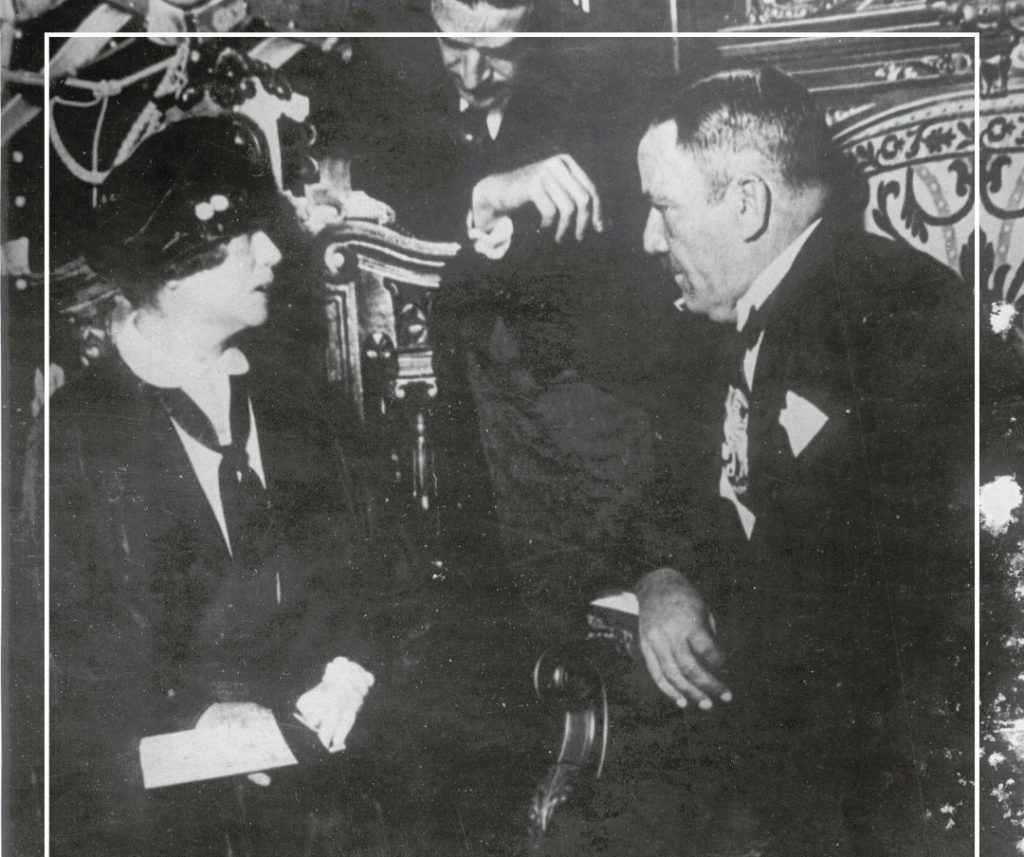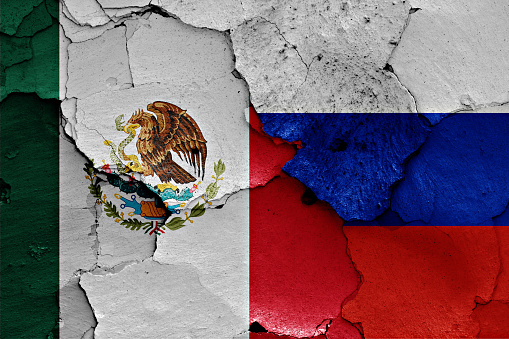On December 11, Russia and Mexico celebrated 131 years since the establishment of diplomatic relations. Russian-Mexican ties not only have a long history, but also have a unique character. How is Russia’s interaction with this Latin American country developing today? What are the most promising areas of bilateral cooperation between Moscow and Mexico City?
For over a hundred years, Mexico has remained one of Russia’s key partners in Latin America both at the regional level and in the international arena. A stable and constantly evolving bilateral interaction is based on long-standing relations built on friendly principles, mutually beneficial cooperation, respect for each other’s interests, as well as proximity or coincidence of approaches to many modern problems.
The beginning of mutual contacts between the two countries dates back to the turn of the 18th-19th centuries. Bilateral diplomatic relations between Russia and Mexico were established on December 11, 1890.
After the October Revolution of 1917, the Soviet Union established diplomatic relations with Mexico on August 4, 1924. However, on January 26, 1930, they were interrupted and then restored in 1942. In the early 1930s, diplomatic contacts between the USSR and Mexico were formally torn apart, but in 1942 they were fully restored.
During the Second World War, the degree of Russian-Mexican interaction increased. Mexico was the only Latin American state to officially condemn the fascist aggression against the Soviet Union in June 1941. After the end of World War II, the USSR and Mexico, together with their allies in the anti-Hitler coalition, initiated the creation of the United Nations.

In 1968, Russian-Mexican relations reached a new level. On May 30 this year, during the official visit of Foreign Minister Antonio Carrillo Flores (Spanish – Antonio Carrillo Flores) to the USSR, Mexico and the Soviet Union signed an “Agreement on cultural and scientific exchange between the Union of Soviet Socialist Republics and the Mexican United States”. After the signing of this document, the bilateral legal framework was strengthened, which subsequently contributed to the development of cooperation in the field of foreign policy, trade, economics, science, culture and sports.
The end of the Cold War, the collapse of the USSR and dramatic transformations in the international arena in the 1990s became a test of strength for Russian-Mexican relations. Today it is safe to say that Russia and Mexico have passed this test, strengthening their role as important centers of world politics in a multipolar world.
Since the early 2000s Russian-Mexican meetings at various levels took place quite often and intensively. With the coming to power in Mexico on December 1, 2018, Andrés Manuel López Obrador, Russia was able to strengthen its presence in this Latin American country, Mexico City’s political rhetoric acquired shades aimed at rapprochement with Moscow.
Political contacts are maintained on a regular basis at the highest and high levels. Over the past two decades, the Russian President Vladimir Putin has visited Mexico twice, and Mexican leaders have visited Russia three times. In February 2020, Sergey Lavrov paid a visit to Mexico while in April 2021 Russian and Mexican foreign ministers had talks in Moscow which resulted in signing a Schedule of foreign ministries’ consultations for 2021-2024.
For the past few years, Mexico has consistently ranked second among Russia’s trade partners in the Latin America and Caribbean region. Trade and economic ties are developing dynamically, including in the energy sector, the automobile industry, the food industry, etc. The Intergovernmental Commission on Economic, Trade, Scientific and Technical Cooperation and Maritime Navigation is working successfully.

The countries are actively working together to respond to the COVID-2019 pandemic. Mexico became the first North American country to register the Russian “Sputnik V” vaccine. To date, more than 20 million doses of the drug have been supplied to Mexican partners from Russia.
In the past few years, educational, cultural and scientific exchanges between Russia and Mexico have been gaining momentum again. To date, the representative office of the Federal Agency for the Commonwealth of Independent States “Rossotrudnichestvo” in Mexico supports the Mexican Association of the Russian Language in organizing and maintaining Russian language courses, which operate in 15 university centers in the Latin American country. Russia annually provides state scholarships for Mexican citizens to study at Russian universities.
Another of the most promising areas is the exploration of outer space. The interaction between Russia and Mexico in the field of exploration and use of outer space for peaceful purposes is gradually strengthening. A draft agreement on bilateral cooperation in this area is being negotiated. As part of the current activities, two successful launches were made from the Baikonur cosmodrome in October 2011 and March 2013 by the “Proton-M” series launch vehicles of the Mexican communications satellites “CatSat-1” and “Satmex-8”, respectively, which are currently located under the control of the customer.
On February 2, 2021, the Deputy General Director of the “Roscosmos” for International Cooperation Sergey Savelyev said that the Draft Intergovernmental Agreement on the deployment of a Russian station of an automated warning system for hazardous situations in near-Earth space (ASPOS OKP) in Mexico is in the final stage of preparation. According to the Deputy General Director of the “Roscosmos” corporation, it will be possible to speak about the direct placement of the station and its commissioning as soon as the aforementioned document is signed and ratified. Savelyev also reminded that the process of placing the ground complex “ASPOS OKP” is associated with the presence of an appropriate regulatory legal framework for cooperation with foreign partners.
Mexico is an important partner of Russia in international and regional affairs. Interaction between the two countries takes place within the framework of the UN Security Council, UN Human Rights Council, ECOSOS, the G20 and APEC.
In his congratulations on the occasion of 131 years of diplomatic relations between Russia and Mexico, Sergey Lavrov noted that the path traversed by the two countries “is an example of peaceful cooperation between states situated on different continents which is based on friendship and deep sympathy of the two peoples, common moral and cultural values and commitment to equitable and mutually respectful dialogue”.
Summing up, it is worth emphasizing that at this stage of Russian-Mexican cooperation, as noted by representatives of the foreign ministries of the two countries, there is a question of improving the legal framework. In turn, we are talking about a number of documents that are at the stage of analysis and development, including draft agreements on a visa-free regime for travel of citizens for tourist purposes, interaction between the Prosecutor General’s Offices, an agreement on maritime navigation, on the mutual recognition of diplomas, and also about scientific degrees and others.


